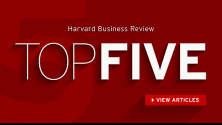Looking to take your leadership skills to the next level in 2023? Having trouble navigating the world of hybrid and remote work? Or are you making a resolution to finally read the stack of books that’s been piling up on your desk? We’ve got you covered with our annual list of leadership must-reads.
Boost your leadership IQ – and EQ – with the books from this list. Let’s dive in.
[Also read: How to build strong teams: 8 must-read books.]
Sludge: What Stops Us from Getting Things Done and What to Do About It

By Cass R. Sunstein
Book description (via MIT Press): “We’ve all had to fight our way through administrative sludge—filling out complicated online forms, mailing in paperwork, standing in line at the motor vehicle registry. This kind of red tape is a nuisance, but, as Cass Sunstein shows in Sludge, it can also impair health, reduce growth, entrench poverty, and exacerbate inequality. Confronted by sludge, people just give up—and lose a promised outcome: a visa, a job, a permit, an educational opportunity, necessary medical help. In this lively and entertaining look at the terribleness of sludge, Sunstein explains what we can do to reduce it.
Because of sludge, Sunstein explains, too many people don’t receive benefits to which they are entitled. Sludge even prevents many people from exercising their constitutional rights—when, for example, barriers to voting in an election are too high. (A Sludge Reduction Act would be a Voting Rights Act.) Sunstein takes readers on a tour of the not-so-wonderful world of sludge, describes justifications for certain kinds of sludge, and proposes “Sludge Audits” as a way to measure the effects of sludge. On balance, Sunstein argues, sludge infringes on human dignity, making people feel that their time and even their lives don’t matter. We must do better.”
Why you should read it: Lead contributor Dave Egts says this is “a must-read for any public sector IT leader charged with improving customer experience and service delivery. The pandemic and current economic crisis have increased constituent engagement with government services more than ever. This demand surge has pushed many systems and processes beyond their breaking point, leading to constituent frustration and damaging their trust in their government. Modernizing technology to meet the demand is necessary but insufficient to address these concerns. The processes used to deliver these services need to be reevaluated to drive out inefficiencies that waste the time of constituents and public servants. This book brings to light much of the red tape we’ve all seen in government processes and their societal and economic impacts. He proposes using “sludge audits” to identify and eliminate sludge to transform customer experience and service delivery to rebuild trust in government.”
Can We Talk? Seven Principles for Managing Difficult Conversations at Work

By Roberta Matuson
Description (via Amazon): “The key to successful dialogue starts and ends with changing the conversation. Recognizing that it takes two people to engage in meaningful outcomes, Can We Talk? outlines what each contributor needs to do to achieve the best possible result. Using examples from everyday work situations, this book offers guidance on how to create the right conditions for a meaningful discussion. The author identifies the seven key principles that enable both parties to gain a deeper understanding of what the other person may be thinking and will help establish their point of view more clearly: confidence, clarity, compassion, curiosity, compromise, credibility, courage.
Can We Talk? includes examples and advice from those who have been there and thrived, as well as lessons learned from conversation failures and example scripts of productive conversations. Readers will learn how to prepare, start and manage the potentially challenging exchange of words that typically occur at work, and come away with an understanding that for any conversation to take place, both parties must be engaged.”
Why you should read it: This book offers practical advice for team leaders to navigate difficult conversations in the workplace. Lead Contributor Roberta Matuson predicts that “given how unstable the economy seems to be, which is impacting workplaces near and far, managers are going to have some really tough conversations on their plate in the coming year.” Strengthening your organization’s ability to have these conversations is necessary and worth the discomfort.
The Transformation Myth
Leading Your Organization through Uncertain Times

by Gerald C. Kane, Rich Nanda, Anh Nguyen Phillips, and Jonathan R. Copulsky
Description (via MIT Press): "The authors, all experts on business and technology strategy, show that transformation is not a one-and-done event, but a continuous process of adapting to a volatile and uncertain environment. Drawing on five years of research into digital disruption—including a series of interviews with business leaders conducted during the COVID-19 crisis—they offer a framework for understanding disruption and tools for navigating it. They outline the leadership traits, business principles, technological infrastructure, and organizational building blocks essential for adapting to disruption, with examples from real-world organizations. Technology, they remind readers, is not an end in itself, but enables the capabilities essential for surviving an uncertain future: nimbleness, scalability, stability, and optionality.”
Why you should read it: You’re a business leader looking for advice on how to adapt in an era of continuous disruption. COVID-19 was the ultimate acute crisis; are you prepared for the next one? Learn how to thrive amid the chaos by reading this leadership book.
Office Shock: Creating Better Futures for Working and Living
By Bob Johansen, Joseph Press, Christine Bullen

Description (via Amazon): “An abrupt, unsettling change in where, when, how, and even why we work. In this visionary book, three prominent futurists argue that the office is both a place and a process—offices and officing—with a new range of choices, including what they call the emerging officeverse. To see the possibilities with fresh eyes, we must use future-back thinking to ask, What is the purpose of your officing? What are the outcomes—especially regarding climate—you want to achieve? With whom do you want to office? How will you augment your intelligence? Where and when will you office? How will you create an agile office? Traditional offices were often unfair, uncomfortable, uncreative, and unproductive. This book explores how to seize this great opportunity to transform office work.”
Why you should read it: You’re curious about the future of the flexible office. Lead contributor Dan Roberts calls this book a “must-read for CIOs.” Read it to discover how to make your office more agile and change the dynamics of your workforce.
Digital Trailblazer: Essential Lessons to Jumpstart Transformation and Accelerate Your Technology Leadership

Description (via Amazon): “In Digital Trailblazer, Isaac Sacolick, a technology leadership expert and a former CIO and CTO, delivers a hands-on guide to help technology and business professionals at all stages of their careers acquire the skills necessary to drive transformative change. With an eye-opening collection of stories and more than fifty lessons, Sacolick gives listeners a view into what goes on behind-the-scenes in leading digital transformations. From tense IT Ops conference calls to make-or-break executive meetings, Sacolick presents the challenging scenarios faced by product, technology, and data leaders and helps listeners learn to lead transformations and become Digital Trailblazers.
In the book you will: step out of your comfort zone and develop the management and leadership skills required to influence executives and win over detractors in driving technology changes; learn how to transform experiences, lead data driven organizations, and foster high performance teams; and discover how to deliver innovation, empower agile self-organization, and evolve standard digital practices that drive culture changes in your organization.”
Why you should read it: This book will help rising technology and business leaders navigate many of the challenges they’ll encounter in their careers. Want to learn how to accelerate your technology leadership journey? You’ll discover more than 50 lessons to guide your way. Whether product, technology, or data leaders – from those aspiring to leadership roles through vice presidents, CIOs, and CDOs – add this to your 2023 book list!
Good Power: Leading Positive Change in Our Lives, Work, and World

By Ginni Rometty
Description (via Amazon): “Ginni Rometty led one of the world’s most iconic companies, and in Good Power, she recounts her groundbreaking path from a challenging childhood to becoming the CEO of IBM and one of the world’s most influential business leaders. With candor and depth, Rometty shares milestones from her life and career while redefining power as a way to drive meaningful change in positive ways for ourselves, our organizations, and for the many, not just the few—a concept she calls "good power. With heart, humility, and conviction, Good Power offers an inspiring, compelling guide to creating meaningful change in our lives.”
Why you should read it: You’re looking for actionable advice on shaping authentic leadership. This read delivers a powerful combination of leadership lessons and big ideas on how we can all drive meaningful change. What is “good” power? It’s a choice available to everyone, and the five principles discussed in this book will give you the answer.
Leadership Paradigms for Remote Agile Development: How To Lead Your Team Remotely

by Benjamin Jakobus, Pedro Henrique Lobato Sena, and Claudio Souza
Description (via Amazon): “This book acts as a concise, practical guide on how to lead successful agile projects in a remote environment. The authors draw from industry experience and a wide range of fields and disciplines–from software engineering to criminology and sociology–to teach you how to maintain technical oversight, manage deadlines, and calibrate expectations, while also creating and maintaining a healthy remote work environment. You will gain both practical tips grounded in reality, while learning why such tips work by navigating the background on which they are founded–from Broken Window Theory, Labeling Theory to the Dunning-Kruger.
Why you should read it: You are wondering why your engineers aren’t delivering, why so many engineers are leaving, or why your software is infected… Anyone in (or wishing to move into) an IT leadership position, such as senior software engineers, founders, engineering managers, or team/tech leads, will learn how to avoid common mistakes and prevent failure of their engineering projects. Carve out a road for success with your 2023 software projects.







